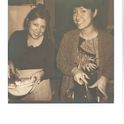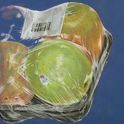What is "food grade mineral oil" and where does one buy it? I recently bought a wooden cutting board. Instructions say to rub it with that.
Thanks so much, PicklePals. ;o)
59 Comments
MarkDecember 4, 2022
Hi, I did this research here in U.K many years ago. In my town, the most inexpensive source of food grade mineral oil is known as 'liquid paraffin'. It's what traditional mothers used to give their young children a spoonful of to act as a safe laxative. It is available here at our chemist shops and counters. It is also the best lubricant and protectant for all kinds of knives and tools around the kitchen or workshop.
cFebruary 8, 2019
You'll find 2 types of Mineral Oil at your drug store. "Light" is only for external uses!
"Heavy" mineral oil is the one to use on your cutting boards. It'll be found in the laxative section because in larger doses that's what it's used for. The trace amount that'll contact the food on your board will not cause problems, but it's still safe to ingest.
"Heavy" mineral oil is the one to use on your cutting boards. It'll be found in the laxative section because in larger doses that's what it's used for. The trace amount that'll contact the food on your board will not cause problems, but it's still safe to ingest.
SmaugMarch 8, 2017
Oils used as wood finishes do not so much "dry" (which would indicate the evaporation of solvents) as they polymerize, a chemical process whereby the oil combines with oxygen to form a new compound. The most common (in woodworking) are tung oil and "boiled" linseed oil; walnut oil also polymerizes. While wax makes a nice surface finish for oil-finished furniture etc., offering a nice feel and even sheen, it offers very little protection, and is pretty useless on cutting boards.
Jas O.March 8, 2017
Your best bet is Amazon. If you get a food-grade white mineral oil, make sure it is non-formulated. Formulated kinds are generally used as lubricants, rust-preventers and/or dust suppressors.
Despite what the selected "best answer" says, walnut oil (and other plant oils) is a bad idea as it absolutely can and does go rancid.
If you're worried about mineral oil being petroleum based, don't. It's more stable and inert than anything else out there. And unless you're living in a mud, grass and wood hut, wear nothing but hemp clothing you made yourself from tools you made yourself, and walk everywhere you're using petroleum-based products throughout each and every day.
Despite what the selected "best answer" says, walnut oil (and other plant oils) is a bad idea as it absolutely can and does go rancid.
If you're worried about mineral oil being petroleum based, don't. It's more stable and inert than anything else out there. And unless you're living in a mud, grass and wood hut, wear nothing but hemp clothing you made yourself from tools you made yourself, and walk everywhere you're using petroleum-based products throughout each and every day.
SmaugFebruary 8, 2017
It is a petroleum product- I don't think anyone has gone so far as to declare it absolutely safe, but it (I use the word "it" but there are actually a number of formulations and grades) is also used as baby oil. The USDA approved food grade presents very little possibility of causing problems; not only are the quantities likely to be ingested minute, but it is (as someone noted below) an "intestinal lubricant" and any that you ingest will pass right out the other end. There should be no problem finding it.
IrishOakandRopeApril 8, 2015
Some may find this usefull
http://irishoakandrope.com/Care-of-your-chopping-board
http://irishoakandrope.com/Care-of-your-chopping-board
Stephen C.March 8, 2015
To be honest, I'm not a big fan of using mineral oil. That stuff is derived from petroleum. In the past I have used straight up Olive Oil but the problem with most plant based oils is that when they get in contact with water, they become rancid. Then the cutting boards will have a very weird smell which can actually affect the taste of your food. I have actually recently come across a product that works very well, CARON & DOUCET cutting board oil and is 100% natural, I recommend it over any mineral oil based product. I have yet to try the wax that they offer but it seems like a really cool product.
drashizuApril 7, 2015
Yes, you "recently came across" a product sold by the company you're CEO of... did you forget you signed in with your Facebook here? lol
sheilagJuly 4, 2014
Just use canola oil. I oil mine nightly. Have for years. Much cheaper and works very well
Stephen C.March 8, 2015
It will go rancid, you should steer away from these types of oil. Check out Caron & Doucet. They make a killer oil that wont go rancid and smells amazing!
TracyJune 6, 2020
don't you work for the company? you should acknowledge that in your comments
Pop44February 7, 2022
We all know that you are CEO of the company you selling for its the second time you commented saying the same thing
AussieFebruary 14, 2014
You can buy food grade mineral oil online in Australia from http://www.foodgradeoils.com.au/oils/fo ... neral-oil/
It is suitable for wooden chopping boards, butchers blocks, wooden utensils etc.
It won't go Rancid or leave a taste/smell on the food like some other oils can. Also, very importantly it wont trigger allergies like peanut oil etc.
It is suitable for wooden chopping boards, butchers blocks, wooden utensils etc.
It won't go Rancid or leave a taste/smell on the food like some other oils can. Also, very importantly it wont trigger allergies like peanut oil etc.
tazDecember 24, 2013
I suggest using cooking oil on your cutting board. Personally, I use olive or grapeseed oil.
BluemoonskeDecember 2, 2013
I've always used olive oil to stop my boards
From drying out. Just let it dry before use. Some old boards get very thirsty. So a few
Applications are needed!
From drying out. Just let it dry before use. Some old boards get very thirsty. So a few
Applications are needed!
JoyJuly 22, 2013
Can coconut oil, jojoba or grapeseed oil be used? I have it on hand and just bought new knife set (block).
jsdunbarApril 22, 2013
I've always used mineral oil only, on cutting boards & on a kitchen island with a butcher block top top, with good results. I am allergic to beeswax & now have a family member allergic to nuts, so this is not something I would not suggest anyone fool around with - allergies can happen suddenly.
cyndi F.January 7, 2013
Vermont Rolling Pins sells a blend of beeswax and food safe mineral oil. Adding the beeswax makes the sheen and protection last longer. And if you're in the market for a rolling pin, they are all hand turned, not only great to use, but to display too.
healthierkitchenDecember 17, 2012
Came across this today: http://www.bonappetit.com.... I've also seen some bloggers post recipes to make this. Has anyone tried it?
hardlikearmourDecember 17, 2012
Yep. I've not tried their brand, but I've made my own. It's really lovely. I did about 80% mineral oil to 20% bee's wax (just eyeballed it). Just warm them up together until the bee's wax is melted, mix well, then pour into jars. Once it's at room temperature it stays solid (but not hard - much like butter at room temp) and smells of honey. Glad you reminded me of it, as I think I'll make some more and give it as little stocking stuffers!
jsdunbarDecember 17, 2012
I've used mineral oil (from the drug store) successfully on wooden spoons, cutting boards & a wooden kitchen island from IKEA. I wouldn't add beeswax because I'm allergic to it, & in the last year we have gained a family member who is allergic to most nuts so I'm glad I didn't use anything else.
Sam1148December 13, 2012
I bought some for sealing some homemade slate cheese boards recently.
Wal-greens (or any drug store) will have it. But you need to know where to look--it's in with the laxatives as "Mineral Oil: Intestinal Lubricant".
Wal-greens (or any drug store) will have it. But you need to know where to look--it's in with the laxatives as "Mineral Oil: Intestinal Lubricant".
chefsusieJune 15, 2012
It's important to note that some people are allergic to almonds and walnuts. Therefore, these wouldn't be an option for them.
DrCrankyPantsFebruary 9, 2012
Ikea often has it and the price is very good.
Kristy M.February 9, 2012
I remember from my restaurant days the bartenders rubbing new Boos Block cutting boards with linseed oil. And linseed oil is another name for flaxseed oil: http://en.wikipedia.org...
It's a natural way to care for wood.
It's a natural way to care for wood.
amysarahFebruary 9, 2012
Something just popped in my head from many moons ago re: linseed oil: it's very flammable. Back in school, smoking - or any open flame - was absolutely verboten in painting studio because of all the flammable materials like that hanging around. Just thought I'd mention it, if you're going to use/store it in a kitchen.
chefsusieJune 15, 2012
FYI: These are not the same in terms of production, etc. One is much more "chemical"
http://www.livestrong.com/article/469135-is-flaxseed-oil-the-same-as-linseed-oil/
http://www.livestrong.com/article/469135-is-flaxseed-oil-the-same-as-linseed-oil/
Alternate C.February 4, 2012
Oops. Forgot the subject line.
Aaron Brands: Intestinal Lubricant Mineral Oil, 16 fl oz
Aaron Brands: Intestinal Lubricant Mineral Oil, 16 fl oz
Alternate C.February 4, 2012
WalMart Online
$1.48 - 16 ounces
Out of stock online
In stores
Price may vary
In stock in your local Arlington store.
Alternate C.February 4, 2012
After inheriting a good quality wood cutting board someone told me they need special care. A search of "Wood cutting boards" at Google led me to various sites about just that. Several of them suggested the following schedule for prepping a new board.
Apply mineral oil, wait five minutes, rub off excess. Do this every day of he first week.
Then do that once a week for the next month.
After, that once a month for the remainder of that first year.
From then on, as needed. Depending on use, about once a week or so.
The mineral oil I use is not labeled "Food Grade" but after approximately six years we've had no problems.
Can't remember whether I bought it at either Home Depot or Lowe's. One of the other.
Apply mineral oil, wait five minutes, rub off excess. Do this every day of he first week.
Then do that once a week for the next month.
After, that once a month for the remainder of that first year.
From then on, as needed. Depending on use, about once a week or so.
The mineral oil I use is not labeled "Food Grade" but after approximately six years we've had no problems.
Can't remember whether I bought it at either Home Depot or Lowe's. One of the other.
MrJDangerFebruary 2, 2012
If you are using a wood block just wash and rinse. Then rub with white vinegar and cover. With kosher salt to dry out it will last you for ever
Devangi R.January 11, 2012
I saw it once at Home Depot. You can even find it at any local store for painting purposes or arts supply stores may be Michael's or so. I buy walnut oil for Canvas painting from arts supply store... They have various oils...
amysarahJanuary 11, 2012
I think you might be thinking of mineral spirits, not oil - which is sometimes used as a thinner for paint and definitely not edible. As you mentioned, walnut oil is sometimes used with oil paint as a thinner/drying agent (like linseed oil.) As far as I know, it's the same as culinary walnut oil, though possibly a lesser grade.
Chef K.January 7, 2012
You can also get it at Williams Sonoma, Boos Blocks brand makes a great oil and board cream
TALNovember 27, 2011
I agree with usuba dashi's post! Why would anyone want to ingest a by- product of the petroleum industry? I don't even put any mineral oil on my skin. Google mineral oil and see what you need to be concerned about.
sexyLAMBCHOPxSeptember 27, 2011
Williams-Sonoma, Whole Foods, any upscale supermarket. Vegetable oil works as well.
charleneSeptember 27, 2011
I used mineral oil on my butcher block island and now when i put a pad of paper down it is oily/stained when i pick it up - what did I do wrong and how can I fix it??
Thanks
Thanks
GreenstuffApril 5, 2011
There's a fellow in New Hampshire who makes interesting spoons out of mountain laurel and other woods. His preservation method is long, slow cooking in walnut oil and beeswax. It smells absolutely wonderful.
amysarahApril 5, 2011
I don't know much about woodwork, but I can tell you that walnut oil used to be a common oil for painting (as in canvases) - to thin paint/as a medium. It's still used - though not as commonly as linseed oil. It dries relatively fast and since it doesn't yellow as much as linseed when it dries, there are advantages with lighter pigments.
In a painting studio, it's stored carefully so it doesn't go rancid (not cheap, and in painting you typically use more than, e.g., the tablespoon or two you'd put in a salad.) I believe that once it dries, going 'off' isn't a problem.
In a painting studio, it's stored carefully so it doesn't go rancid (not cheap, and in painting you typically use more than, e.g., the tablespoon or two you'd put in a salad.) I believe that once it dries, going 'off' isn't a problem.
usuba D.April 5, 2011
The reason walnut oil is used in woodworking is because it does not go rancid. Any oil will dry and add a layer of protection on wood, which is why all furniture with oil finishes should be given a coating of good wax now and then . . . or if you are like me, I make my own paste wax with 4 parts beeswax and one part walnut oil. I buy my walnut oil at the food store . . .always cheaper than the walnut oil at the paint store, since it should be the same thing. That also lets me use it in cooking or salads. I have never had my oil go rancid, even expeller pressed.
cmsuNovember 25, 2012
usuda dashi, in your first post you say 2 parts walnut 1 part beeswax. then in the 2nd post you say 4 parts beeswax one part walnut. are they for different purposes? thanks!
cmsuNovember 25, 2012
usuda dashi, in your first post you say 2 parts walnut 1 part beeswax. then in the 2nd post you say 4 parts beeswax one part walnut. are they for different purposes? thanks!
GreenstuffApril 5, 2011
usuba dashi, I have a question about an apparent walnut oil paradox. Maybe you'll know the answer: when it comes to cooking, we are warned to keep walnut oil in the refrigerator to keep it from going rancid. Yet, it's commonly used as a food-safe wood preservative that won't go rancid. I've read that when it's applied to wood that it "dries out" or "hardens." Is that the key? Thanks.
RobertaJApril 5, 2011
Drugstore is the way to go. Mineral oil USP is cheap and works like a charm. USP is United States Pharmacopeia, and means there is a quality standard the product must meet before its sold.
Sadassa_UlnaApril 4, 2011
I bought mine at IKEA but I like hla's idea!
usuba D.April 4, 2011
When I am not cooking, I do woodworking. Mineral oil in petroleum based. Personally, I have an issue with the petrol industry. Instead, you can use walnut or almond oil . . .they will not go rancid and I think are a more natural finish to use (I use walnut oil & beeswax on the furniture I build). To really get a first class finish, I like to melt, over a double boiler two parts walnut oil and one part beeswax. I melt the beeswax in the oil, stir it up and once it cools, I keep it in a jar. Once a month, a quick rub of fresh coating on my wooden board keeps it in perfect condition. My father did they same, and I still use his original cutting board he bought in 1941, along with his butcher block from his shop from the same date. The walnut oil and beeswax will create a water proof seal on the surface, protecting the wood for over a lifetime.
Pufferfish13December 13, 2012
It is true that you can use walnut oil on your cutting board. However, my husband is allergic to nuts, so I can't use walnut or almond oil. So my advice is unless you are sure that no one you know is sensitive to nuts stick with a non-allergenic, food grade oil like USP mineral oil. I appreciate that people have issues with the petrol industry, but when it comes to your health and the health of your friends and family, it is better to be safe than sorry. On top of that, USP mineral oil is much easier to find and much cheaper than either walnut or almond oil. Just take a look in the pharmacy section of your local Target or Walmart, it will be in with the section along with the Pepto Bismal and the laxatives since mineral oil is also a "digestive lubricant." It is a fraction of the price of any nut oil or any butcher block oil that you find in the hardware section (around $1.65 for 16oz). I do the same type of bee's wax mix as usuba dashi but I use mineral oil instead. It works great and is truly food-safe for everyone, even those with nut allergies.
Pufferfish13December 13, 2012
It is true that you can use walnut oil on your cutting board. However, my husband is allergic to nuts, so I can't use walnut or almond oil. So my advice is unless you are sure that no one you know is sensitive to nuts stick with a non-allergenic, food grade oil like USP mineral oil. I appreciate that people have issues with the petrol industry, but when it comes to your health and the health of your friends and family, it is better to be safe than sorry. On top of that, USP mineral oil is much easier to find and much cheaper than either walnut or almond oil. Just take a look in the pharmacy section of your local Target or Walmart, it will be in with the section along with the Pepto Bismal and the laxatives since mineral oil is also a "digestive lubricant." It is a fraction of the price of any nut oil or any butcher block oil that you find in the hardware section (around $1.65 for 16oz). I do the same type of bee's wax mix as usuba dashi but I use mineral oil instead. It works great and is truly food-safe for everyone, even those with nut allergies.
StacyGApril 4, 2011
Yes, the drug store mineral oil is the proper oil for your wood cutting boards. It would also be the least expensive. I'm sure the blends the chain stores sell work too but they won't work any better.
mainecook61April 4, 2011
Food grade=you'd drink it. prettyPeas is right; it's a common drugstore item, designed to move things right along. Its utilitarian nature (in the drug store) also means it is cheap there. (Organic gardeners also use a drop or two at the tip of an ear of corn, the better to fool the corn ear worm.)
SKKApril 4, 2011
hla has it nailed. The difference between the oils is the FDA approves food grade for use directly on food - where it is manufactured and how it is manufactured comes into account to be food safe. Do check the label, a petroleum based mineral oil can be food safe if you care about not using petroleum based products.
hardlikearmourApril 4, 2011
I've gotten some at Bed, Bath, and Beyond. I'm pretty sure Ikea carries it as well. Any place that sells wooden knife blocks, or butcher blocks, or cutting boards should carry it. Kitchen Kaboodle and Sur la Table also carry it. I've made a really nice wood finish/conditioner with 80 percent mineral oil, and 20 percent melted bee's wax - solidifies at room temp & smell's like honey.
prettyPeasApril 4, 2011
They also sell it at drugstores as an "intestinal lubricant". Same stuff. I recently got this beeswax/mineral oil combination http://www.amazon.com/Howard...
and really like it--the finish lasts a bit longer and it is easier to apply evenly to vertical surfaces.
and really like it--the finish lasts a bit longer and it is easier to apply evenly to vertical surfaces.
GreenstuffApril 4, 2011
The brand I have at the moment is Planet Natural Block Oil. It came from a hardware store. I don't think it's actually mineral oil, as real mineral oil comes from oil, and this one, I suspect is plant-based, including some lemon oil. Real mineral oil would probably have been cheaper. Basically, what you want for preserving wood cutting boards is something that's safe to eat and doesn't go rancid. Rub it into your new cutting board on occasion, and it will remain more odor-free and last longer.
boulangereApril 4, 2011
Try a hardware store.
Stephen C.March 8, 2015
To be honest, I'm not a big fan of using mineral oil. That stuff is derived from petroleum. In the past I have used straight up Olive Oil but the problem with most plant based oils is that when they get in contact with water, they become rancid. Then the cutting boards will have a very weird smell which can actually affect the taste of your food. I have actually recently come across a product that works very well, CARON & DOUCET cutting board oil and is 100% natural, I recommend it over any mineral oil based product. I have yet to try the wax that they offer but it seems like a really cool product.
JohnFebruary 8, 2017
You can get it at a drug store.
Mineral oil with a USP rating.
Around $5.99 for 160z
Mineral oil with a USP rating.
Around $5.99 for 160z
Showing 59 out of 59 Comments
Recommended by Food52
Popular on Food52
Continue After Advertisement

















